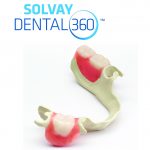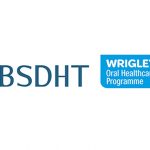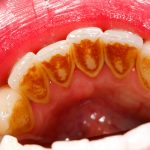Chancellor Philip Hammond delivered the Autumn Budget on Wednesday 22 November. We have summarised the key points which will be of interest to dentists.
NHS
The Chancellor announced an extra £10billion will be invested over the course of this Parliament to support the NHS Sustainability and Transformation Plans.
There will be an additional commitment of resource funding of £2.8billion to the NHS in England.
Potentially the Government will relax the public sector pay cap from April 2018 for nurses, midwives or paramedics.
Education, science and research
From next April graduates will not have to pay back their student loans until they are earning £25,000 a year.
There will be £2.3 billion for investment in research and development.
Public health
Duty on beer, wine, spirits and most ciders will be frozen but high-strength alcohol will see an increase.
Tobacco will continue to rise by two per cent above Retail Price Index (RPI) inflation, while the minimum excise duty on cigarettes introduced in March will also rise. And hand-rolling tobacco will increase by additional one per cent.
Tax
From April the National Living Wage will increase from £7.50 an hour to £7.83. The amount you can earn before paying tax will rise to £11,850 from April 2018.
The higher rate of tax will increase to £46,350.
VAT threshold for small business will remain at £85,000 for two years.
Businesses with turnover above the VAT threshold will not be mandated to use Making Tax Digital until April 2019, and then only for VAT obligations.
The Government pledged not to widen the scope of Making Tax Digital until the system has been shown to work well, and not before April 2020 at the earliest.
Business
The Government pledged to provide a further £2.3billion of support to businesses to reduce the burden of business rates. Check with your local council for local schemes which may benefit you. Some businesses will be fully exempt.
Business rates will also switch to being increased by the Consumer Price Index (CPI) rather than by the typically higher Retail Price Index (RPI) from April 2018 – two years earlier than previously planned.
Business rates revaluations will start taking place every three years, rather than every five years, starting after the next revaluation, currently due in 2022.
The Government intends to introduce legislation shortly to retrospectively address the so-called “staircase tax”.
Affected businesses will be able to ask the Valuation Office Agency to recalculate valuations so that bills are based on previous practice backdated to April 2010 – including those who lost Small Business Rate Relief as a result of the recent Court judgement.
Brexit
As there will be a reduced access to the EU’s single market, the Government will be working towards an “outward looking, free-trading nation” after Brexit. There has been an investment of almost £700million so far.
There will be an additional £3billion set aside over the next two years to prepare the UK for every possible outcome as it leaves EU.
Off-payroll working in the private sector
The government reformed the off-payroll working rules (known as IR35) for engagements in the public sector in April 2017.
According to the government early indications are that public sector compliance is increasing as a result. They are therefore considering extending the reforms to the private sector, to ensure individuals who effectively work as employees are taxed as employees even if they choose to structure their work through a company. We will keep a watching brief on this issue and keep members informed of developments.
The government will consult on how to tackle non-compliance in the private sector, drawing on the experience of the public sector reforms, including through external research already commissioned by the government and due to be published in 2018.
What we do for dentists
We offer a range of advice and support for members on BDA dental activity reviews, companies and LLPs, financial management and tax, available from our advice section (member-login required).
Through our policy and campaigning work, we are able to ensure that the concerns of all sections of the profession are raised and that dentists’ voices are heard at a national level: join us.
You can also follow updates from the BDA on Twitter, Facebook or LinkedIn.















